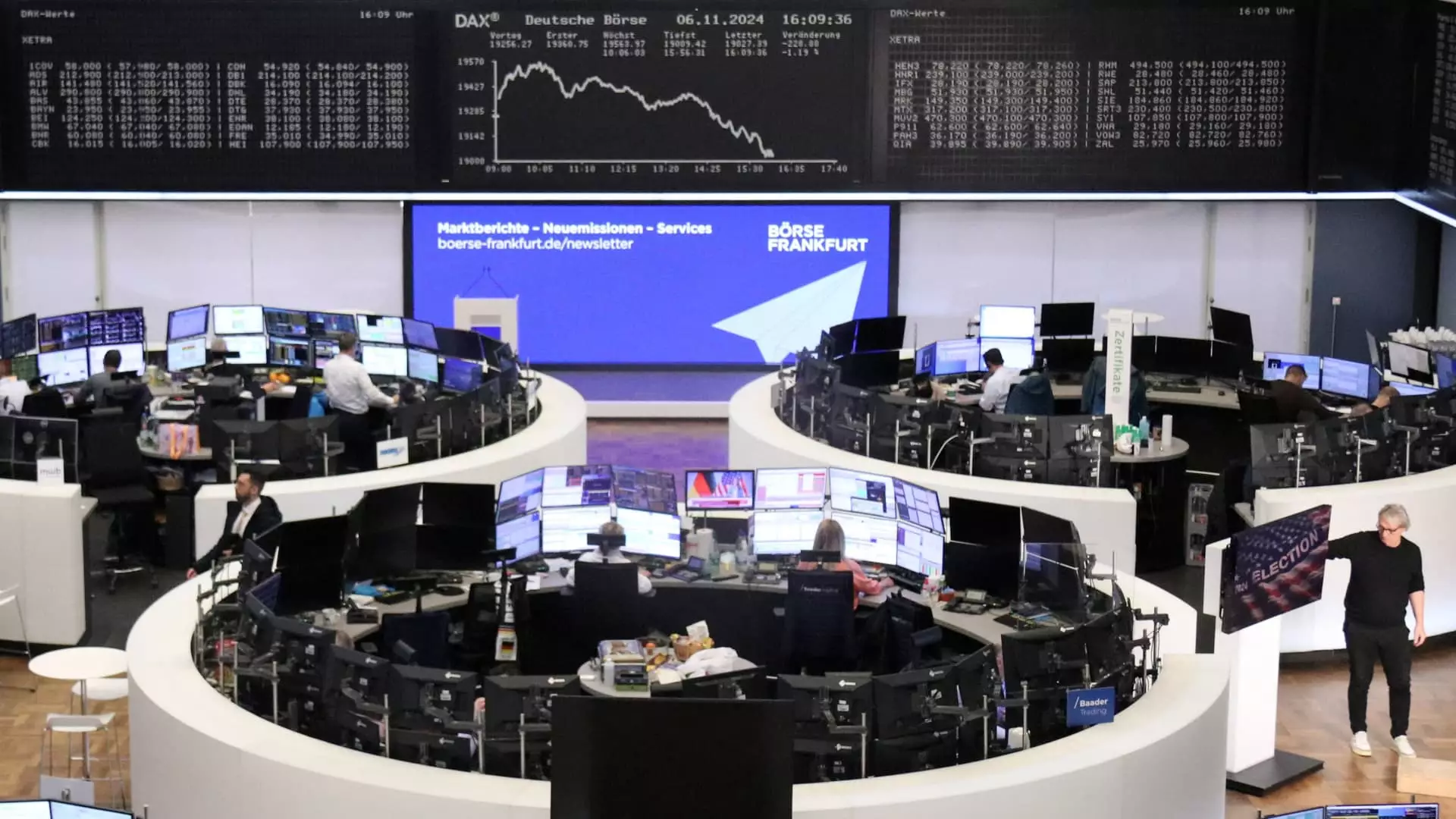As the dust settles on an unsettling storm in global equities, European stocks have managed to open higher, but the air remains thick with uncertainty. Investors are momentarily buoyed by the prospect of U.S. President Donald Trump’s 25% tariffs on Canada and Mexico potentially being relaxed—a flicker of hope in a darkened landscape. The Stoxx 600 index experienced a welcome uptick of 1.05%, signaling a tentative recovery after a tumultuous day of losses prompted by tariff concerns. However, the monthly oscillations in stock indexes are a mere reflection of deeper systemic issues that threaten to unravel the fabric of global economics.
The Underlying Political Tensions
Political alliances in Europe are pivoting toward contentious reforms that could help stabilize the declining economic momentum, yet they simultaneously embody a quagmire of negotiation and potential backlash. Germany’s conservative alliance and the Social Democratic Party, poised to form the next coalition, are attempting to squeeze through a reform of the contentious debt brake system. This recalibration aims to support an excessive military budget as well as a five hundred billion euro infrastructure fund. While such initiatives can be seen as economically invigorating, they also raise eyebrows and fears of fiscal irresponsibility. Does this signal a return to excessive borrowing habits reminiscent of past economic crises, or a responsible investment in future stability?
Military Spending versus Economic Growth
The debate raging around military funding compared to economic growth cannot be overstated. Friedrich Merz, a frontrunner for the chancellorship, brings promises of bolstered defense spending exceeding 1% of GDP. While some frame this as a necessary modernization of Germany’s military, others remain deeply skeptical, questioning if prioritizing military budgets is the answer to reviving a struggling economy. Is it time that European leaders re-evaluate their footing when it comes to defense spending at the expense of social programs and public welfare? The pursuit of security must not eclipse the fundamental need for social stability—a line that appears increasingly blurred in contemporary politics.
Rising Borrowing Costs: A Looming Risk
Recent announcements from German leaders suggesting that budget deficits could surpass 3% of GDP have sent shockwaves through bond markets. The yield on German 10-year bonds—a staple metric for gauging fiscal health—rose significantly, implicating a potential rise in borrowing costs. As more nations flirt with the idea of heightened borrowing to fund military and infrastructure projects, one must ask: are we courting an era where unfettered spending leads to hyper-inflation, leaving the average citizen to bear the brunt of poorly thought-out fiscal policies? As Andrew Kenningham, Chief Europe Economist at Capital Economics, puts it, the need for more decisive action from Germany is crucial, yet it comes with an inherent risk of destabilization in bond markets.
The Euro’s Resilience in the Face of Turmoil
In more positive news, the euro regained strength against the U.S. dollar, extending a late Tuesday rally by 0.47%. One must discern, however, whether this momentum reflects genuine investor confidence or merely a knee-jerk reaction to fleeting political narratives. The euro’s resilience indicates a certain level of faith in the European economy’s fortitude, but as tariffs loom large on the horizon, it’s critical to consider the broader implications. Can the euro withstand the pressures of escalating trade wars, or will recent gains be rendered moot by a cycle of retaliatory economic measures among global powers?
The Price of Procrastination
The concerning reality remains that we are on the brink of a potential global trade war, a situation exacerbated by Trump’s newly instated tariffs on both Canada and Mexico, coupled with an additional tax on Chinese imports. The ripple effects on international markets are for all to see—the dust hasn’t settled, nor has the volatility decreased. As Wall Street endures its own tremors, one must ponder whether any optimistic projections are naïve in the face of such a precarious set of international relations. Political leadership will be tested rigorously in the coming months—the question is, are they adequately prepared to face these challenges head-on, or will procrastination spell disaster for the global economy?

